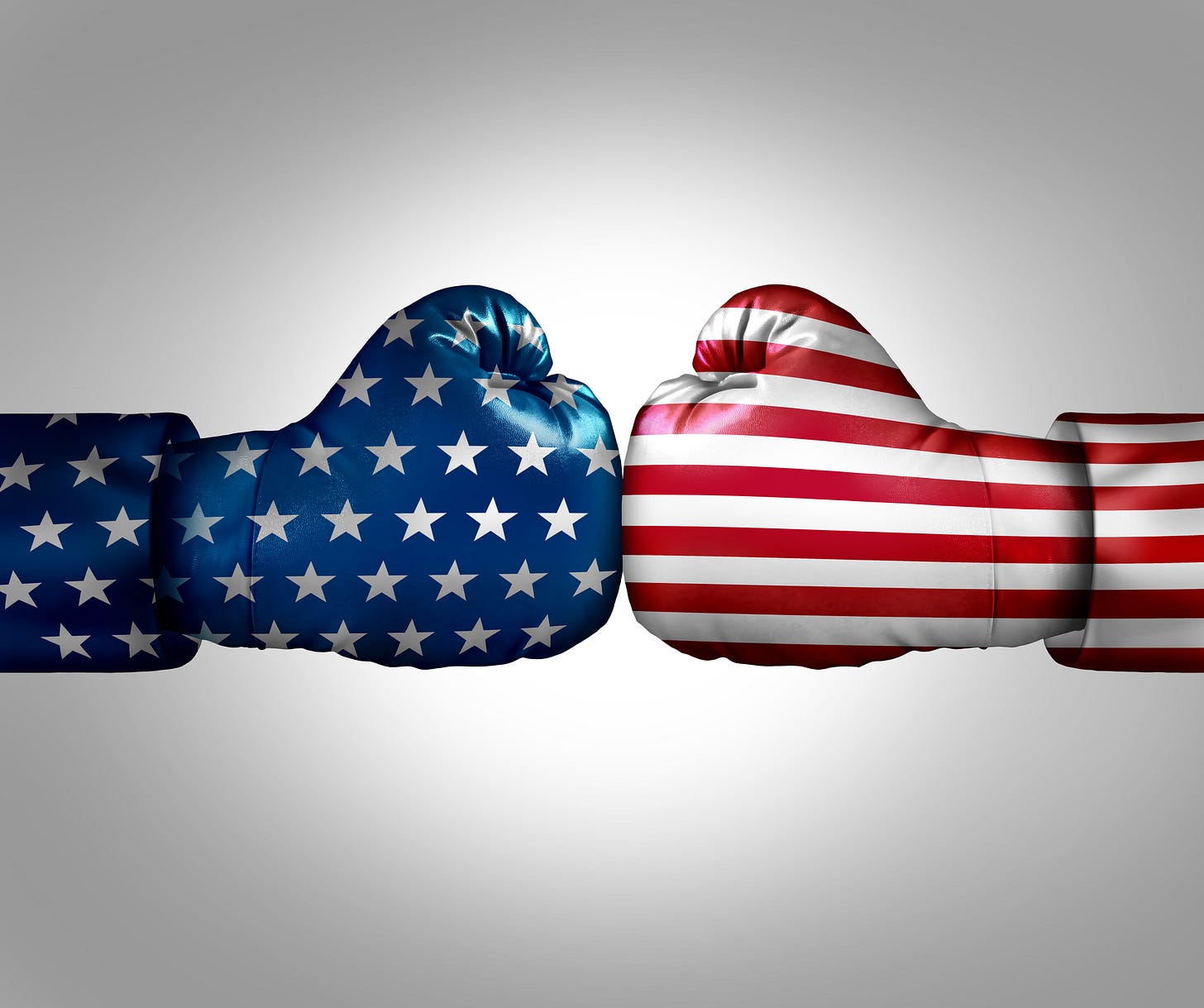Rethinking the Centerless Society
I revisit the argument of my second book and wonder whether I got some important things wrong
As some of you are no doubt aware, I’ve written two books. The first, The Theocons (2006), is much better known than the second, The Religious Test (2010). The former is a polemical intellectual history of a series of Catholic intellectuals and their influence on the religious right. The latter is a partial correction of the first book—an effort to provide a more nuanced account of the interaction between religious faith and liberal political institutions and ideals.
That effort informs every chapter, including the one on the anti-religious New Atheists who were selling so many books at the time I was writing mine. But the argument is developed most fully in the book’s Epilogue, which is titled “Religion in a Centerless Society.”
The Rise of Liberal Centerlessness
Blending arguments from Aristotle, Leo Strauss, Isaiah Berlin, Niklas Luhmann, and John Rawls, I asserted that non-liberal politics is a contest among various parties or factions in a given political community over which of them will exercise rule and thereby get to define the community’s vision of the good life. This image of politics held in the West until the Protestant Reformation, which shattered the underlying unity of European life. With the continent’s polities much more deeply divided than they once were, continuing to conceive of politics in classical terms contributed to civil violence.
Liberalism arose in this context, as a rescue operation for European life. Instead of a contest over which faction would rule in the name of an overarching vision of the good life, liberal politics would focus, instead, on mere life (the achievement of prosperity, peace at home and abroad) and relegate higher (metaphysical) questions to the private sphere of life for individuals to answer for themselves, far away from the political arena. In the decisive respect, then, liberalism is politics for a centerless society, giving us a way to live peaceably with one another despite our deep differences.
But what happens when religious believers within a liberal polity feel called by their faith to seek political rule in order to advance its vision of a comprehensive public good? When that happens, the liberal state needs to resist the effort, conveying the message that such religious groups have every right to demand a seat at the table of public debate and discussion but no right to attempt to seize control of the table.
Clashing Comprehensive Views
For several years following the publication of The Religious Test, I deployed this argument in my writing for use against the religious right—but I also used it quite frequently from 2014 through 2016 against progressives who seemed eager to impose their own counter-orthodoxy on the country, just as the New Atheists appeared eager to do during the previous decade. Often progressives did this using the logic of anti-discrimination law: People must be forced to affirm the equality and even the positive goodness of same-sex marriages in their public acts, for example, even if their private convictions pointed in the opposite direction. In my view, this amounted to an effort to impose the equivalent of an established church of progressivism on the polity as a whole.
This argument aligned me with conservative Yuval Levin just a few years after I’d become notorious for attacking Richard John Neuhaus and his allies on the religious right. I hadn’t changed my views at all. I was merely applying the same logic to parallel moves on either end of the political spectrum.
I’ve continually done the same thing ever since. That’s how I’ve become known as a political centrist. Yet something has changed down through the intervening years. Where I once felt embattled on both sides, with just a modest number of likeminded allies fighting to defend the liberal center, in the years since Donald Trump became president the number of liberals has dwindled even further. Levin still fights the good fight, as does David French, and a handful of liberals on the center-left. But the rest of the country? I don’t hear a lot of people making the case for tempering their desire to impose their vision of the good on the country as a whole. And that has me wondering about the soundness of my original argument for liberal centerlessness.
(Before moving onto the next section of this post, I should acknowledge that I’m playing with somewhat different senses of the word “centrist” in the previous paragraph. I tend to be a political centrist in the sense that I think conservatives and progressives each get some things right and other things wrong. That places me somewhere between them on the ideological spectrum of our moment. But the term “centerless society” from my second book has a different meaning. It refers to a society in which no one group gets to place its metaphysical or comprehensive moral commitment at the center of our public life. Politics in such a society is oriented toward solving low-stakes problems having to do with mere life rather than achieving some vision of the good life. That supposedly makes those societies “centerless.”)
The Crumbled Consensus
But what if liberalism isn’t some political outlier—the one form of politics that proceeds without an overarching vision of the good life—but rather just one variation on the classical story of politics as a contest for control of the center? If that’s the case, maybe the centerless form of politics I defended in my second book was based on a conceptual illusion.
Keep reading with a 7-day free trial
Subscribe to Notes from the Middleground to keep reading this post and get 7 days of free access to the full post archives.





